Your sleep patterns and habits shift with age, and not getting enough sleep can wreak havoc on your mental health and appearance. Stress and sleep deprivation are major contributors to premature aging, so it doesn’t matter how much expensive skincare you slather on; sleep issues will age you faster than nobody’s business. Here is how your daily routine could be detrimental to your sleep and put you on a fast track to wrinkles and an aged complexion.
1. Not Having a Consistent Bedtime Routine
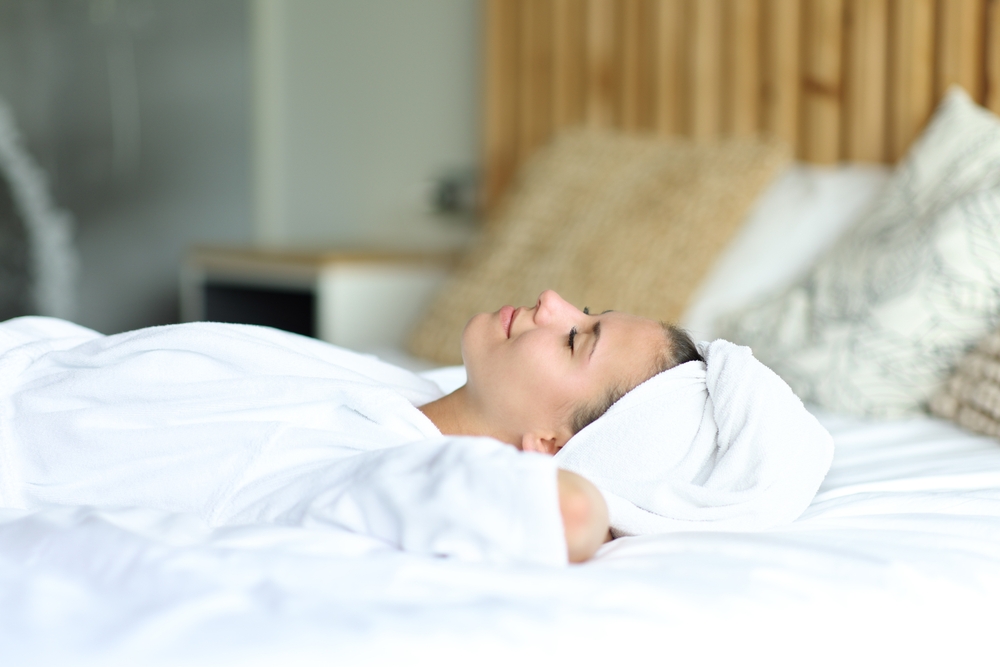
Sleep breeds sleep. If you aren’t getting enough or you have poor quality sleep, it induces stress and anxiety and ruins your mental health. Stress speeds up the body’s natural aging process and breaks down collagen, which is the protein that gives skin its structure and firmness. Implement a nighty bedroom routine and stick to it. Turn off the screens at least an hour before bed, go to sleep at the same time, and if you have trouble drifting off, have a warm bath first, listen to a meditation track, and try putting on some white noise or sleep music.
2. Skipping Your Evening Skincare Routine
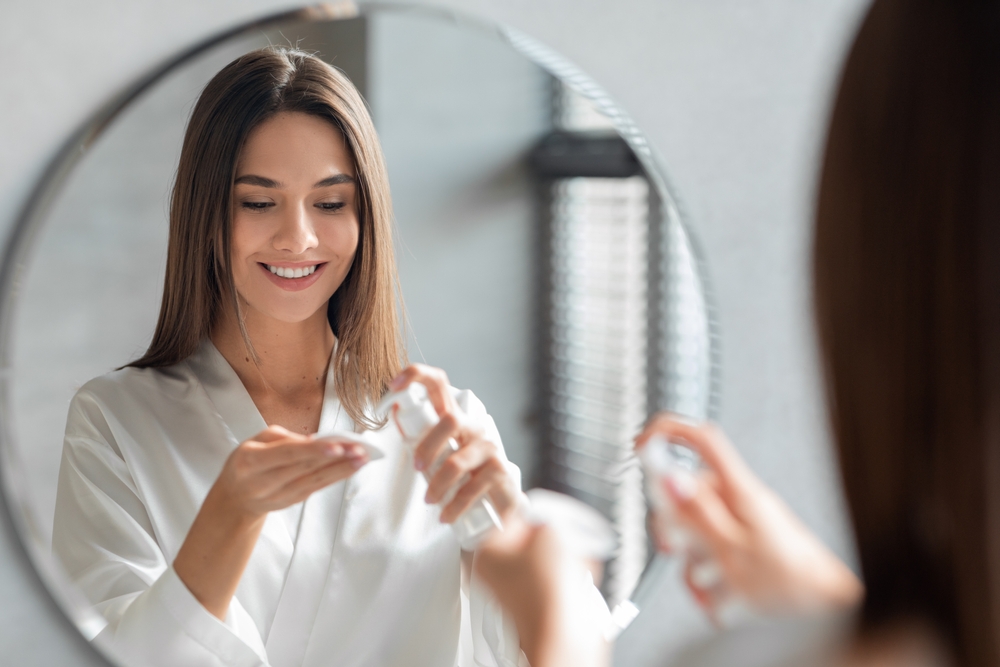
It’s tempting to go to bed after a long, demanding day without bothering to wash your face. However, neglecting your nighttime skincare regimen leads to dull skin, breakouts, and clogged pores. Your skin absorbs debris, oil, and pollutants during the day, which needs to be cleansed off. Sleeping in makeup also prevents your skin from breathing and repairing itself properly overnight. Create a nightly skincare routine that includes a double cleanse, anti-aging serums (vitamin C and retin A are proven to fight aging), and a nourishing face and neck cream specifically for the night.
3. Drinking Coffee Late in the Day

That afternoon cup of joe can cause sleeplessness at night. Caffeine has stimulating properties, so it can make you feel jittery and wired and remain in your system for hours, making it harder to fall asleep. When you have poor quality sleep, you can wake up drowsy, and in your sleep, this presents puffiness, dark circles, an exhausted look, and more lines and wrinkles. Don’t drink coffee at least six hours before bed, and switch to calming herbal teas if you have trouble sleeping.
4. Using Devices Before Bed
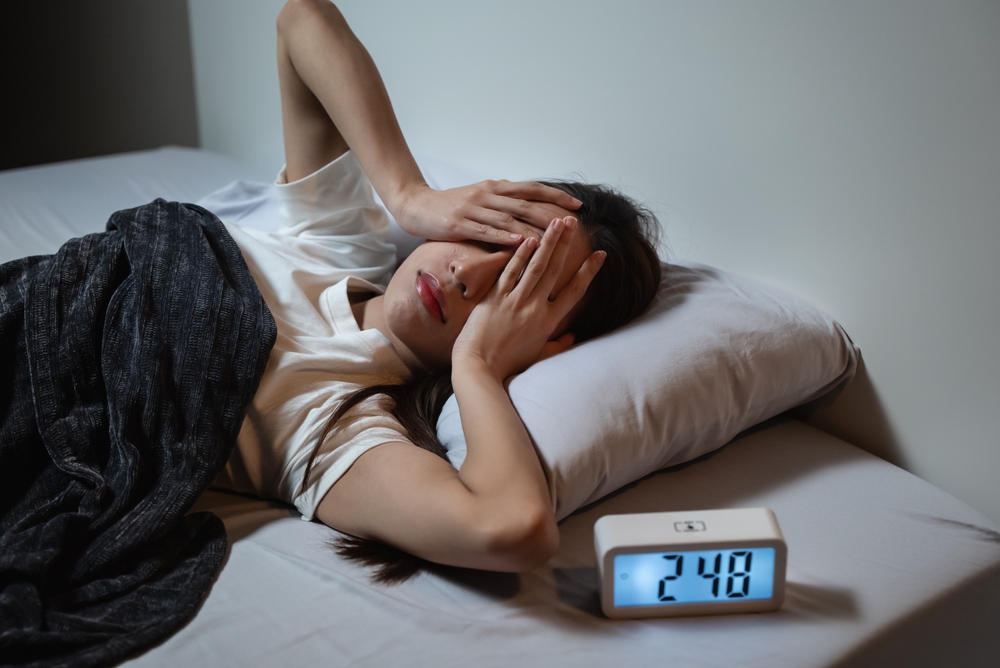
The blue light released by computers, tablets, and cellphones is disrupting your body’s regular sleep schedule. The hormone melatonin, which controls sleep, is suppressed by this artificial light, making it difficult for you to fall and stay asleep. Sleep deprivation causes stress levels to spike, which can cause inflammation in the body and increased cortisol levels (the stress hormone), which, in excess, damages healthy collagen and the skin’s DNA. Establish a tech-free wind-down routine at least an hour before bed to preserve your skin and sleep.
5. Overindulging in Sugar

Sugar-rich diets have disastrous effects on your sleep patterns, your weight, and, ultimately, the health of your skin. Overindulging in sugary foods causes insulin levels to spike, which disturbs your sleep and exacerbates skin conditions like inflammation and acne. Too much sugar also speeds up wrinkles and premature aging as it causes inflammation in the body and a condition known as glycation, where sugar binds to collagen and elastin proteins, destroying them.
6. Drinking Alcohol Before Bed

Having a nightcap might seem like a soothing way to wind down, but alcohol can negatively impact your sleep quality. Although a drink might make you sleepy faster, once its effects wear off and your body metabolizes all that sugar, you can wake up earlier and more often. Alcohol also dehydrates the skin, giving it a lifeless, dull, and aged appearance. Regular alcohol misuse can worsen skin disorders like rosacea, redness, and acne.
7. Sleeping on Your Stomach
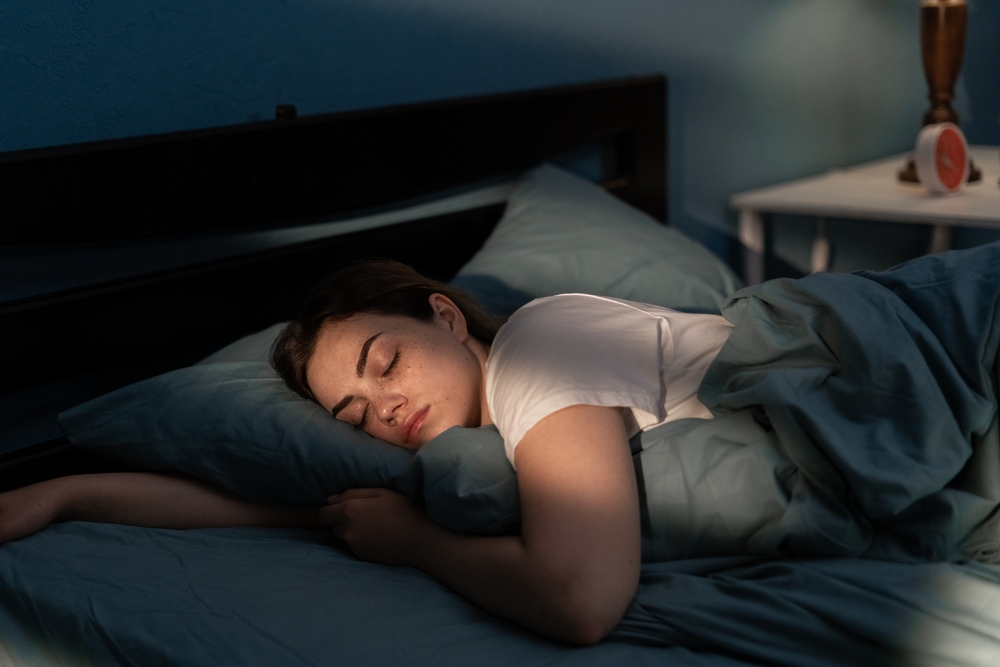
The way you sleep can aggravate sleep disorders and impact your skin. It may seem cozy, but sleeping on your stomach compresses your face, which, over time, may result in the development of sleep lines, which grow up to become permanent wrinkles. Sleeping this way can also lead to puffiness of the face and around your eyes. Lying on your stomach for prolonged periods can also cause physical discomfort that can keep you awake and put stress and tension on your neck and back.
8. Not Drinking Enough Water

Dehydration can adversely affect your level and skin. When you don’t get your adequate fill of H20—you need 2.7 liters of water per day to maintain your health and the health of your skin— your complexion can become dry, flaky, and more prone to wrinkles. When your body is dehydrated, it can cause cramping in your muscles and stiffness at night, which can wake you up.
9. Eating Heavy Meals Late at Night

Eating a heavy, carb-loaded meal right before bed can cause discomfort, acid reflux, and indigestion. These all make it harder to fall asleep and remain asleep. Your skin will also suffer as sleep disturbances are associated with higher stress levels, which is a trigger of aging. Try to eat your dinner 2-4 hours before bed and ideally eat lighter, more easily digestible foods at night. A leafy green salad and lean protein like chicken or omega-3 fatty acid-laden salmon will improve your sleep and also give your skin the antioxidants and vital nutrients it needs to stay strong and look more youthful.
10. Smoking
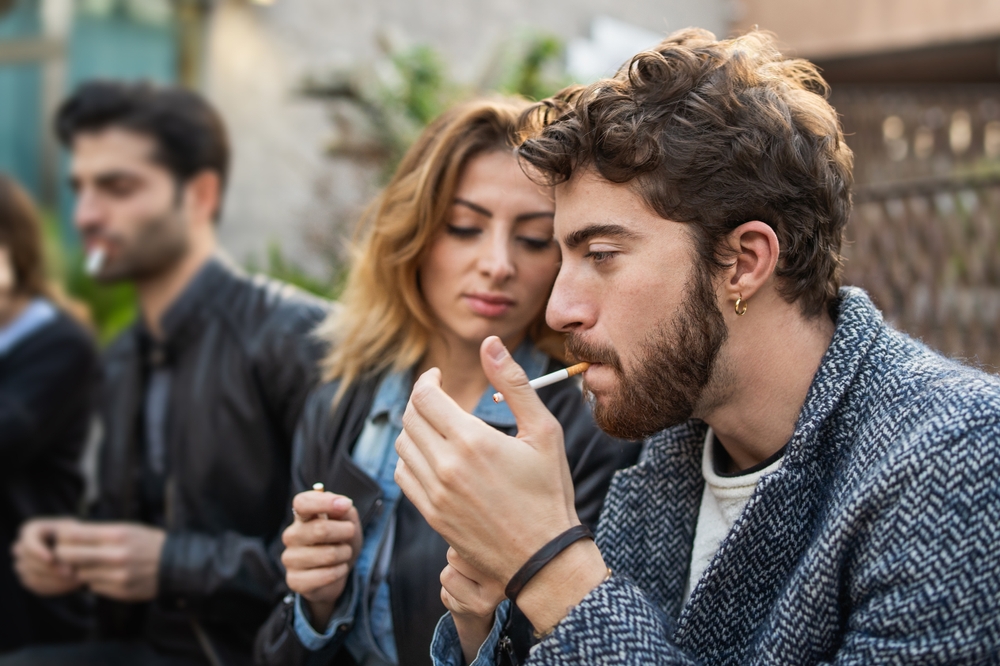
Smoking is the worst habit for your sleep and skin. Cigarette smoke contains toxic chemicals that speed up the aging process and cause uneven skin tone, dullness, and wrinkles. When you smoke nicotine, it reduces blood flow to the skin, depriving it of vital minerals and oxygen. Smoking also throws off your circadian cycle, increasing the likelihood of sleep difficulties. So, it becomes a vicious cycle, and in addition to poor sleep and aged skin, smoking puts you at risk of lung disease.
11. Ignoring Signs of Stress
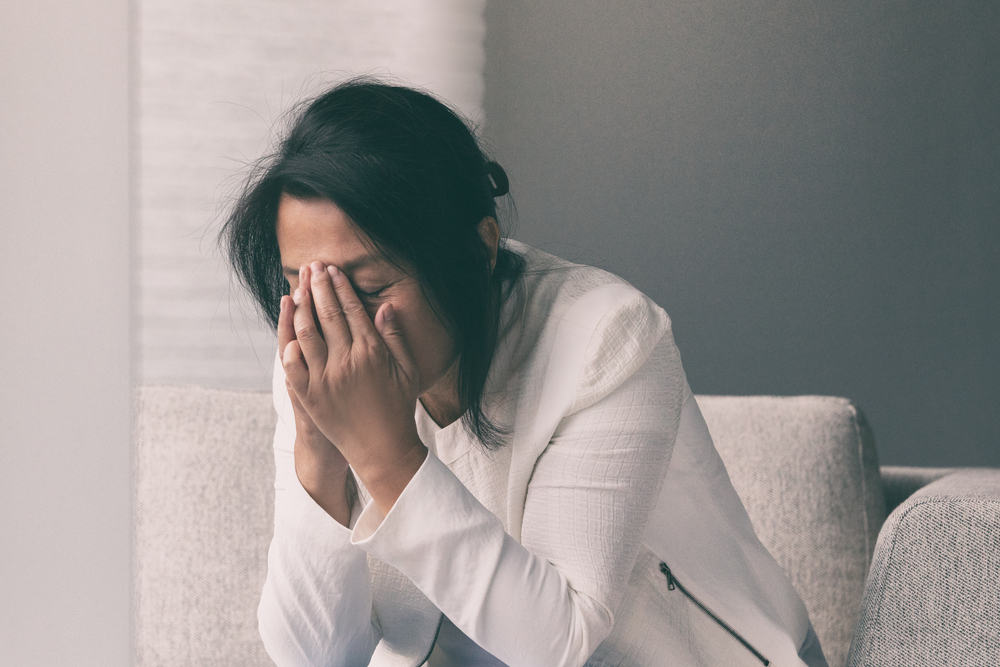
Chronic prolonged stress can negatively impact your health, mental health, sleep quality, and skin. Stressing out causes your body to create more cortisol, a hormone that can lead to inflammation, breakouts of acne, and other skin problems. When you’re super stressed, it can also be impossible to unwind and go to sleep. Include stress-reduction methods in your daily routine. Yoga, deep breathing, meditation, and going for a long walk, ideally in nature, can all elevate your mood and enhance the quality of your sleep. Stress management will also prevent the risk of premature aging.
12. Not Washing Your Pillowcases Regularly
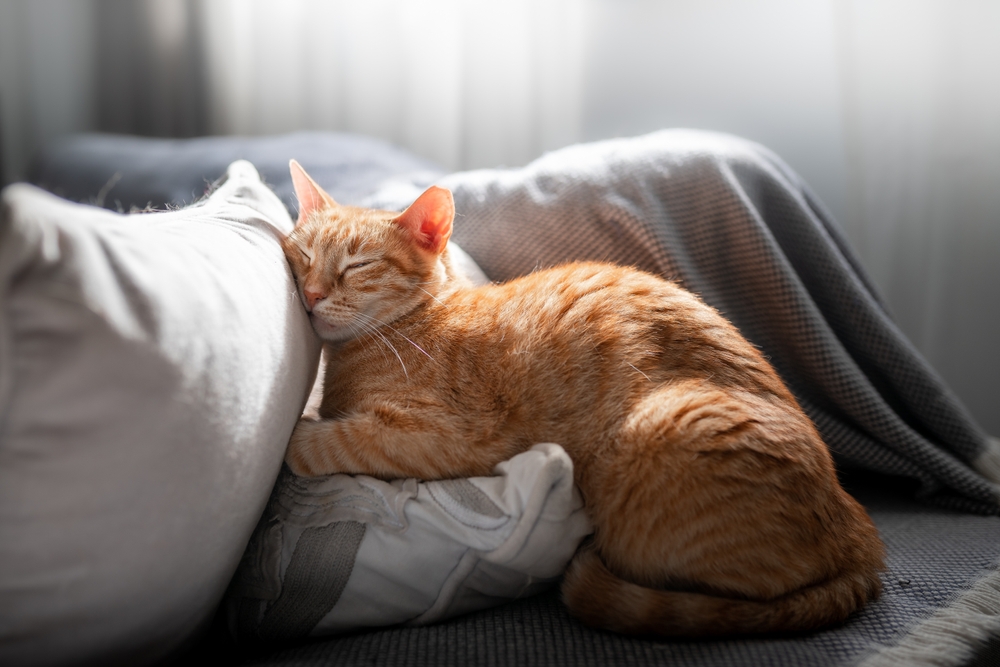
Your pillowcases absorb bacteria, oil, and debris from your face, which transfer onto the skin and cause breakouts, congested pores, and skin issues. More worrying, dust mites, and allergies also set up home on your pillowcase, which can make it difficult to breathe and cause more allergies and allergic reactions. Make it a practice to wash your pillowcases in hot water at least once a week to get rid of any dirt or allergen accumulation. It’s also a good idea to choose pillowcases and sheets made from breathable, gentle-feeling fabrics like silk and cotton.
13. Not Exercising Enough

Regular daily exercise is important for physical and mental health. When you exercise, the body releases endorphins. These happy hormones lift your mood and help overthrow free radicals, toxic compounds that attack antioxidants, which keep your skin healthy and youthful. It’s recommended we get in 8000-10000 steps per day to maintain our body weight, keep our blood pumping, boost our circulation, and stay physically and mentally in top shape. Exercising also helps induce sleep, which we now know is the key to great skin.



